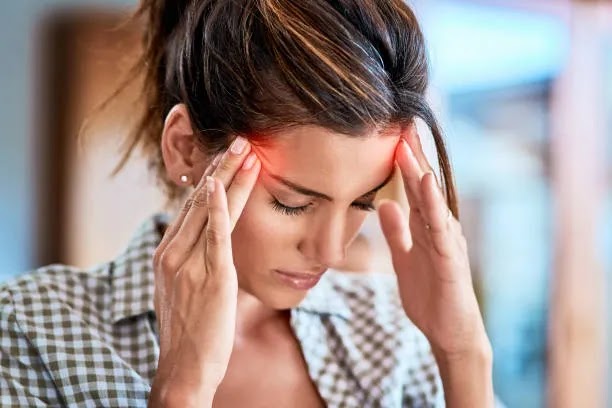What to expect from mild to severe.
Many individuals are concerned
about the potential adverse effects of the Moderna and Pfizer COVID-19
vaccinations, which are still being given out across the country. The Centers
for Disease Control and Prevention is now addressing the vaccine's most typical
adverse effects to calm fears about the vaccination, which experts believe will
help ensure herd immunity if the majority of people get it. In their new guidance, they explain, "COVID-19 vaccine will help protect you from
getting COVID-19." "You may experience certain side effects, which
are common signs that your body is preparing to defend itself. These side
effects may make it difficult to do daily tasks, but they should decrease
within a few days." Read on to find out what they are.
1. You Might Feel a Bit of Pain
You may feel pain near the
injection site. "Talk to your doctor about using an over-the-counter drug
like ibuprofen or acetaminophen if you feel pain or discomfort," they say.
They also recommend wiping the area with a clean, cool, wet washcloth.
2. You Might Have Swelling
According to the CDC, you may
notice swelling on the arm where you received the shot. They recommend that you
"use or exercise your arm" to relieve any irritation.
3. You Might Have a Fever
Fever is a common adverse effect of
vaccines. The CDC recommends drinking "enough water" and wearing it
lightly to reduce fever discomfort.
4. You Might Have Chills
Because fever and chills go hand in
hand, it's not unusual that a chilling sensation could be a side effect.
5. You Might Feel Tiredness
Do not be worried if you feel a
little tired after your vaccination. According to the CDC, this is a common
side effect.
6. You Might Have a Headache
Finally, another common side effect
of immunization is a headache.
7. The Side Effects May Feel
"Flu-Like" in Nature
According to the Centers for
Disease Control and Prevention, "Side effects may feel like flu-like
symptoms and may interfere with your ability to do daily tasks," but they
"should fade away in a few days."
8. Severe Allergic Reactions Are
Rare
While severe allergic reactions
have occurred due to the immunization, they are unusual. "If you acquire a
COVID-19 vaccine and suspect you're suffering a serious allergic reaction after
leaving the vaccination place," they advise, "get immediate medical
attention by dialing 911."
9. When to Call Your Doctor
While "discomfort from fever
or pain is normal," the CDC recommends calling your doctor or healthcare
provider in the following situations:
- If the redness or pain in the shot gets worse after 24 hours, see your doctor.
- If you're worried about your side effects or don't seem to be going away after a few days, talk to your doctor.
10. Don't Forget Your Booster
"Most COVID-19 vaccines
require two shots to be effective," the CDC warns. It is recommended that
you get the second dose even if you have side effects after the first shot
unless a vaccine provider or your doctor advises you not to.
11. Protection Takes Time
Immunity won't develop overnight,
and it won't happen until your second shot. They tell out that "it takes
time for your body to build protection after any immunization."
"Vaccines for COVID-19 that require two shots may not protect you for a
week or two after the second shot."
12. How to Protect Yourself
To safeguard your life and the lives of others, "Cover your mouth and nose with a mask when near others, remain at least 6 feet away from others, avoid crowds, and wash your hands often," they advise.













